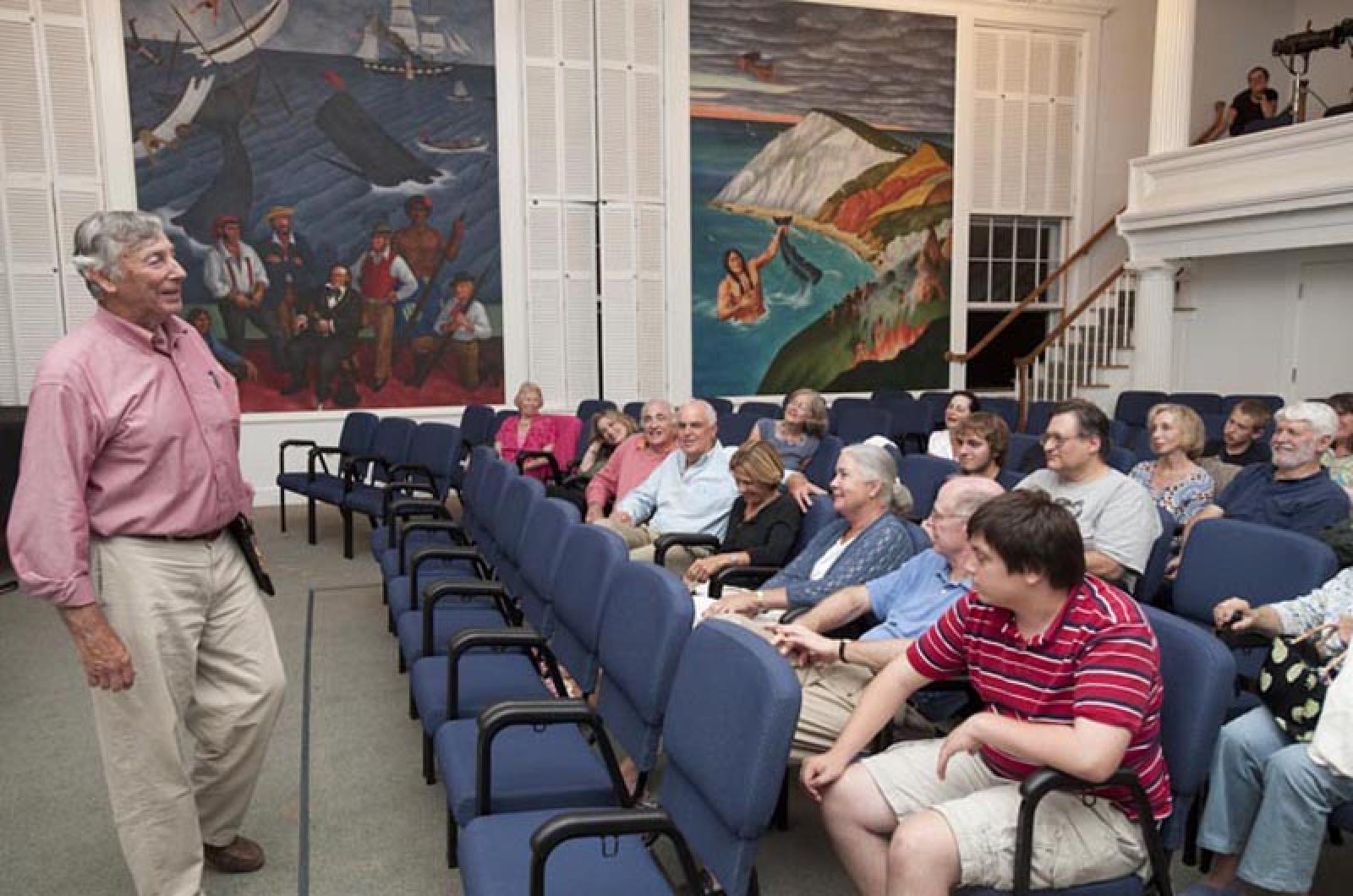When I think of Sheldon, what always comes first to mind is what a nice man he was. He was the epitome of masculine niceness, the kind of person we call a “true gentleman.” And of course he had that Southern accent and gracious manners, which made him all the more charming. He was attentive, friendly, humorous and courteous. That he was smart and well-informed was just a bonus.
I got to know him when he gave his first series of talks about the American national identity at the Vineyard Haven Public Library, where I’m in charge of organizing such events. I was frankly intimidated by Sheldon’s fancy pedigree — head of the National Endowment for the Humanities! President of an Ivy-League University! World-renowned scholar! But he sensed that and quickly, gently put me at ease. I remember telling him that I was musing about being appropriately dressed on the evening I was going to introduce him for the first time. I wondered if we should dress up for the occasion more than I usually did. Sheldon replied in a mock-serious tone, “if I don’t find your attire appropriate, I shall just have to turn my back on you.” I immediately felt more comfortable — and wore my casual Friday attire to the event.
I did several programs with Sheldon at the library, culminating in a months-long series about the American Civil War, for which he was our local scholar. He prepared for each one of his talks as if for a lecture to academics. But although he was a serious scholar and intellectual himself, he didn’t look down his nose at anyone, and was a gentle, skillful discussion leader. He was endlessly fascinated by the question of what is the American character, but he believed that there was no single answer to it, and that every American’s opinion was a priori as legitimate as any other’s. What he could add to the discussion was a wealth of facts and a genuine Socratic talent for helping people discover and refine their own opinions.
When Sheldon talked about American history and identity, he didn’t shy away from the less than glowing parts of our history. He was passionately interested in the histories of slavery and race relations, of Native American peoples, of injustices and mistakes. He wanted to understand how, and if, we had overcome these things and what more needed to be done to make the U.S.A a “more perfect union.”
And of course I think about his love for his daughter Virginia, forever a child in an adult’s body. Sheldon loved her dearly, but was determined to let Virginia find her own way in the world, however much that prospect scared him (and his beloved wife Lucy as well). When Virginia fell ill with pancreatic cancer, Sheldon took to writing a nearly daily series of email letters addressed to Friends and Fans of Virginia. In the days since Sheldon died, I’ve gone back and re-read some of those letters. They’re full of warmth, and humor and poetic phrases. But more than that they’re full of truth, as Sheldon didn’t bother to try to hide his fears and sadness about what was happening to his daughter and his family. His email updates are just overflowing with love; his dedication to the truth, however unpleasant, was inextricably bound up in that love. (Sheldon published these letters in a book, Following Virginia 1958-2007, that is available at the Vineyard Haven Library.)
If ever there lived a man who embodied the notion of the humanities, it was Sheldon. I feel so very blessed that I got to have him, and his family, as friends.
Betty Burton is in charge of adult programming at the Vineyard Haven Library.







Comments
Comment policy »